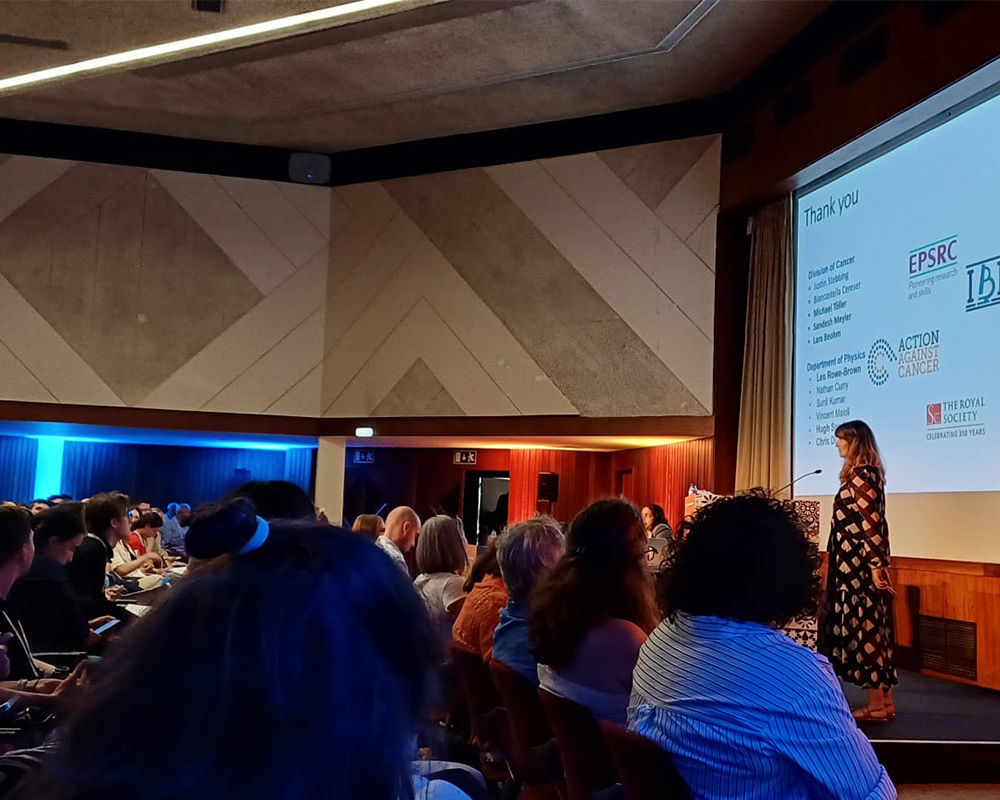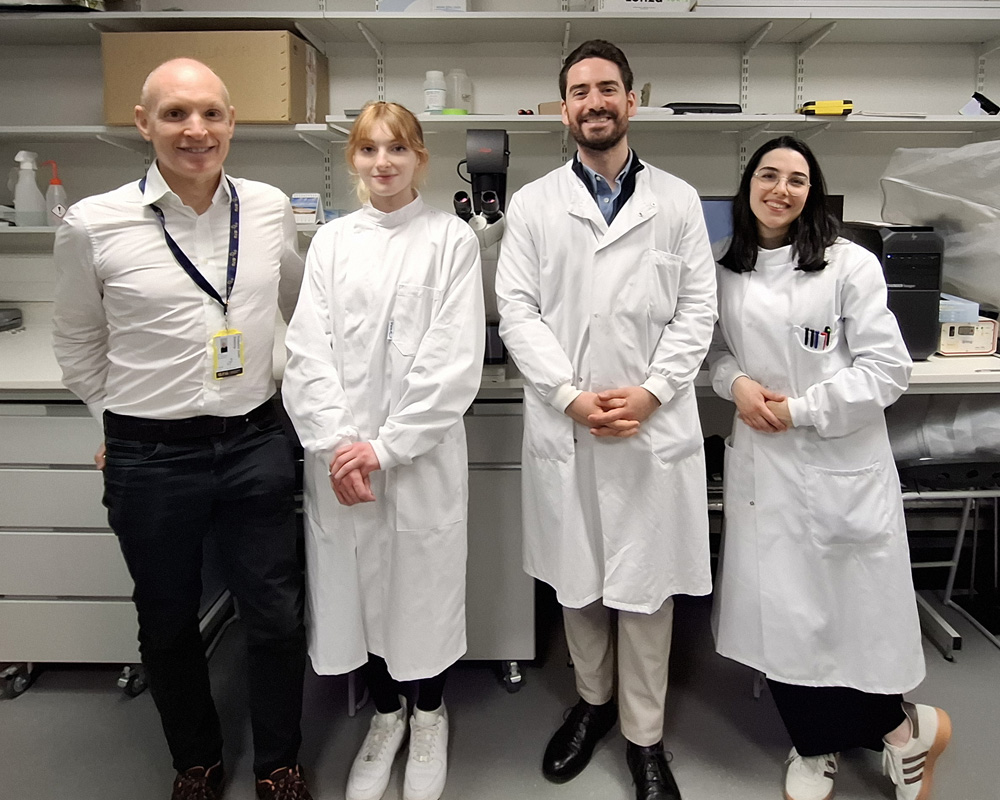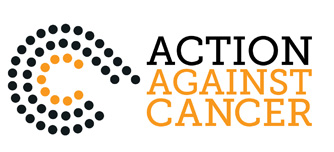Our work
Latest updates from the labs
Action Against Cancer funds research carried out by various teams of dedicated scientists at Imperial College London, the University of Sussex and at the Professor Stebbing Cell and Molecular Biology Laboratory at Anglia Ruskin University Cambridge.
Highlights of their work from 2025 are outlined below.
Cancer stem cells
Cancer cells within the same tumour are not identical, they carry different mutations that can either work together or against each other during cancer progression. A research team, funded by Action Against Cancer at Imperial College London, has been investigating the potential development of combination therapies that eliminate the most aggressive cells while sparing healthy tissue.
They have successfully identified genes belonging to two known cancer-driving pathways, that when mutated together, lead to a more invasive and aggressive phenotype. The team will examine this phenotype in greater detail to understand why cells become more aggressive and how we can stop this by targeting both pathways.
Led by Dr Nina Moderau (pictured), this research was one of 12 projects chosen out of 1,700 entries to be showcased at the European Association for Cancer Research Annual Congress 2025.
Developing a new drug - A totally new approach to therapy
A study was published in the summer with a cancer “off switch” breakthrough in this research programme funded by Action Against Cancer since 2011. The team at the University of Sussex has revealed that blocking the LMTK3 protein can prevent breast cancer tumours from turning immune cells into 'friends'. In cancer, immune cells can be either 'friends' or 'foes', depending on the specific cell type and the tumour microenvironment.
The team has discovered that high levels of LMTK3 in breast cancer cells can trick the body's defences - and that switching it off with drugs could turbo-charge immunotherapy by fighting tumour cells, thereby delaying or preventing spread and ultimately prolonging lives.
LMTK3 is also present in other parts of the body - including the lungs, thyroid, stomach, colon, ovaries and skin - meaning the findings could have positive implications on a range of cancers.
Metastasis
Brain metastases (when cancer spreads to the brain) are a serious and often life-limiting development for many people living with cancer. They are especially common in individuals with lung cancer, melanoma, and certain types of breast cancer. At the moment, there is no way to predict who will develop brain metastases, and diagnosis often means undergoing risky brain surgery. Even after diagnosis, regular MRI scans are used to check if the cancer has come back—but these are expensive, sometimes inconclusive, and can be very stressful for patients and families.
Action Against Cancer is collaborating with the Sussex Cancer Fund to support a potentially life-changing research project - developing a simple blood test to detect and monitor the spread of brain cancer, removing the need for risky brain surgery and stressful MRI scans.
Genetic switches
Despite an increase in treatment options, breast cancer remains the leading cause of cancer mortality in women. Part of the difficulty in treating breast cancer comes from the complexities of the tumour microenvironment which contains a variety of different cells that can influence progression.
Fibroblasts are normal cells which become activated in the tumour microenvironment to become cancer-associated fibroblasts (CAFs). These can support tumour growth and progression in a variety of ways including altering the metabolism of fats. High fat diets and obesity have been shown to lead to worse outcomes, however, to what extent these can impact CAF functions is currently unknown.
Action Against Cancer is funding research at Anglia Ruskin University Cambridge which aims to identify the effect of different kinds of fat on CAFs. Identifying the pathways involved in the metabolism of fat and how this affects treatment and outcomes, could help identify drug targets and improve treatment outcomes in the future. (Team pictured with Professor Justin Stebbing).
Understanding the cancer brain
Over the years, research has often focused either on immunology or on cancer biology. Supported by Action Against Cancer, a team led by Dr Biancastella Cereser at Imperial College London, is bringing these fields together to examine how the immune system influences cancer progression. Current understanding recognises that cancer can escape the body’s immune system and continue to multiply. The team are studying the mechanisms cancer cells develop to evade immune surveillance and how tumours use specific cells to survive – and crucially, to find ways to prevent them doing this.
By engineering immune cells and combining them with cancer cells that harbour defined mutations, they were able to analyse how immune cells transform into either a tumour-promoting or a tumour-inhibiting state. The team successfully discovered immune cells that respond differently to specific mutations. They plan to investigate the mechanisms behind immune evasion and identify ways to activate immune cells so they can attack cancer cells again.
Some previous achievements in the labs:
- From 2024
- From 2023
- From 2022
- From 2021
- From 2020
- From 2019
- From 2018
- From 2017 (part two)
- From 2017 (part one)
- From 2016


